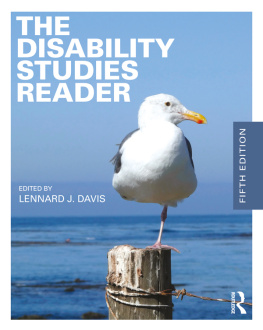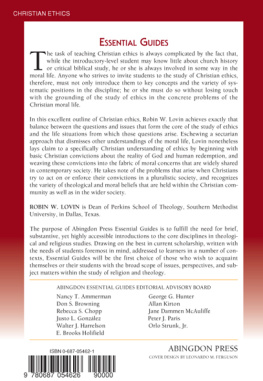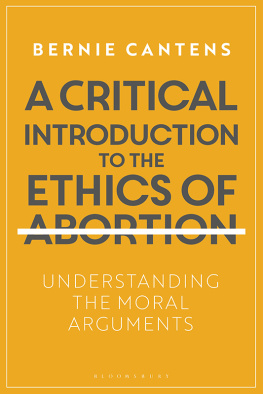Davis - Ethics at the end of life : new issues and arguments
Here you can read online Davis - Ethics at the end of life : new issues and arguments full text of the book (entire story) in english for free. Download pdf and epub, get meaning, cover and reviews about this ebook. year: 2017, publisher: Routledge, genre: Politics. Description of the work, (preface) as well as reviews are available. Best literature library LitArk.com created for fans of good reading and offers a wide selection of genres:
Romance novel
Science fiction
Adventure
Detective
Science
History
Home and family
Prose
Art
Politics
Computer
Non-fiction
Religion
Business
Children
Humor
Choose a favorite category and find really read worthwhile books. Enjoy immersion in the world of imagination, feel the emotions of the characters or learn something new for yourself, make an fascinating discovery.
Ethics at the end of life : new issues and arguments: summary, description and annotation
We offer to read an annotation, description, summary or preface (depends on what the author of the book "Ethics at the end of life : new issues and arguments" wrote himself). If you haven't found the necessary information about the book — write in the comments, we will try to find it.
Ethics at the end of life : new issues and arguments — read online for free the complete book (whole text) full work
Below is the text of the book, divided by pages. System saving the place of the last page read, allows you to conveniently read the book "Ethics at the end of life : new issues and arguments" online for free, without having to search again every time where you left off. Put a bookmark, and you can go to the page where you finished reading at any time.
Font size:
Interval:
Bookmark:
First published 2017
by Routledge
711 Third Avenue, New York, NY 10017
and by Routledge
2 Park Square, Milton Park, Abingdon, Oxon, OX14 4RN
Routledge is an imprint of the Taylor & Francis Group, an informa business
2017 Taylor & Francis
The right of the editor to be identified as the author of the editorial material, and of the authors for their individual chapters, has been asserted in accordance with sections 77 and 78 of the Copyright, Designs and Patents Act 1988.
All rights reserved. No part of this book may be reprinted or reproduced or utilised in any form or by any electronic, mechanical, or other means, now known or hereafter invented, including photocopying and recording, or in any information storage or retrieval system, without permission in writing from the publishers.
Trademark notice: Product or corporate names may be trademarks or registered trademarks, and are used only for identification and explanation without intent to infringe.
Library of Congress Cataloging in Publication Data
Names: Davis, John K. (Associate Professor of Philosophy), editor.
Title: Ethics at the end of life : new issues and arguments / edited by
John K. Davis.
Description: 1 [edition]. | New York : Routledge, 2016. | Includes
bibliographical references and index.
Identifiers: LCCN 2016048693 | ISBN 9781138829756 (hardback)
Subjects: LCSH: DeathMoral and ethical aspects.
Classification: LCC BJ1409.5 .E84 2016 | DDC 179.7dc23
LC record available at https://lccn.loc.gov/2016048693
ISBN: 978-1-138-82975-6 (hbk)
ISBN: 978-1-315-72795-0 (ebk)
Typeset in Times New Roman
by Apex CoVantage, LLC

The End of Life
How to End Life
Deciding for the Incompetent
Eric Vogelstein
This chapter discusses the moral framework for surrogate decision-making for incompetent medical patients. The chapter focuses on the question of how we can respect the autonomy of those who are no longer competent to make such decisions. The standard counterfactual account of how to respect the autonomy of the incompetent is evaluated, along with accounts that ground respect for autonomy on the patients most recent desires and values (regardless of whether the patient still possesses those desires and values) as well as accounts according to which only the current desires and values of the patient matter. Other issues discussed include whether questions of personal identity should affect decision-making for incompetent patients, whether a patients former desires and values factor in to the patients current well-being, and whether an incompetent patients investment interests should guide decisions on the patients behalf.
Medical patients, under ordinary circumstances, are free to make their own choices about how to be treated (or not to be treated). A cancer patient, for example, is free either to accept or to refuse life-extending chemotherapy, based, for example, on their own view of how to weigh length of life versus quality of life. Or consider the following case:
Ozzie is diagnosed with a disease that is easily cured with a blood transfusion, but fatal without a transfusion. Ozzie is a devout Jehovahs Witness, and thus believes that accepting blood transfusions is contrary to Gods commands; he therefore refuses the transfusion, knowing full well that he will die.
The widely accepted view is that Ozzie ought to be allowed to refuse the transfusion, regardless of whether others view that decision as wrongheaded or seriously harmful to Ozzie; the law in the United States and most other developed nations follows suit, giving Ozzie the legal right to refuse treatment.
When patients are unable to make their own choices, however (due, e.g., to dementia, delirium, unconsciousness, or mental illness), someone else must make medical decisions on their behalf. In those cases, various questions arise about how such decisions ought to be made. In particular, we want to know who should make those decisionswho should be the surrogate decision-makeras well as how surrogates should go about making the relevant decisionsthat is, on which criteria they should base their decisions.
Standard practice has it that patients, if they wish, may designate a particular person to be their surrogate should they become unable to make decisions (such a person is sometimes called a proxy or agent). The official legal designation or document is usually called a medical power of attorney or a power of attorney for health care. If such a designation has not been made, then ones next of kin becomes the surrogate; individual states have particular orderings for who is to be the surrogatethe top three are usually (1) spouse, (2) parents, and (3) adult children.
But even if it is clear who is or ought to be the surrogate decision-maker, there is still the question of how that person ought to go about making the often momentous, life-and-death decisions he or she will be faced with. Presumably, the surrogate should not be allowed to make any decision he or she wantsbut how should the surrogate decide? For example, should the surrogates decision be based purely on whats in the patients best intereststhat is, what best promotes the patients welfare or well-being? That might mean, for example, giving Ozzie the transfusion if he is unable to make his own decisionafter all, it is plausible that continuing to live would be in Ozzies best interests. Or should the decision be based on the patients desires and values , even when they conflict with the patients welfare? Acting in accordance with Ozzies values would mean not giving him the transfusion, and allowing him to die. According to the standard view, surrogates should try to glean what the patient would want if she were competent, and act accordingly (e.g., via instructions for treatment that the patient provided prior to becoming incompetenteither verbally or documented in a living willor based on an inference from what the surrogate knows of the persons values, the so-called substituted judgment principle). But is that standard view correct, or does it suffer from philosophical or ethical problems? If the standard view is problematic, then what is the correct principle for surrogate decision-making? These are some of the questions that will be addressed in this chapter.
A good place to begin answering these questions is with the moral principle of respect for autonomy and its application in the medical domain. Respect for the patients autonomy, or self-determination, is a guiding principle in medical ethics. According to widely accepted views, patients have a strong prima facie right to make their own medical decisions. That right, however, is conditional upon the patients decision-making competence (roughly, having a certain degree of understanding and rationality), in the following way: a decision made while incompetent is considered to be non-autonomous , and thus the principle of respect for autonomy does not require us to honor such a choice. At the same time, it is still considered possible to respect or violate the autonomy of some incompetent medical patientsspecifically, those who have been competent in the past . (Those who have never been competent, on the other hand, have no autonomy to either respect or violatein that case, the widely accepted view is that such patients should be treated based on what best promotes their well-being.) There is some controversy, however, about how we respect the autonomy of the incompetent, and thus how, on the prevailing view, surrogate decision-makers ought to decide for the incompetent. There is debate, that is, about the theory that correctly explains how to respect incompetent patients autonomy. And theory matters, because different theories will license different actionsthe decision that is made for a particular incompetent patient may hinge on which theoretical framework is applied to the case. At no time is this more important than at the end of life, when decisions about forgoing and discontinuing life-sustaining treatment are prevalent.
Font size:
Interval:
Bookmark:
Similar books «Ethics at the end of life : new issues and arguments»
Look at similar books to Ethics at the end of life : new issues and arguments. We have selected literature similar in name and meaning in the hope of providing readers with more options to find new, interesting, not yet read works.
Discussion, reviews of the book Ethics at the end of life : new issues and arguments and just readers' own opinions. Leave your comments, write what you think about the work, its meaning or the main characters. Specify what exactly you liked and what you didn't like, and why you think so.
















